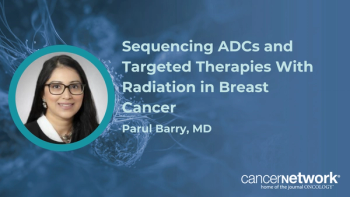
Oncology NEWS International
- Oncology NEWS International Vol 10 No 3
- Volume 10
- Issue 3
Dioxin TCDD Finally Listed as ‘Known’ Human Carcinogen
BETHESDA, Md-An addendum to the National Toxicology Program’s Ninth Report on Carcinogens moves the dioxin TCDD (2,3,7,8-tetrachlorodibenzo-p-dioxin) from the "reasonably anticipated" to cause human cancers category to the "known to be a human carcinogen" designation. A legal challenge to the change prevented the new designation from being published in the full report last May.
BETHESDA, MdAn addendum to the National Toxicology Program’s Ninth Report on Carcinogens moves the dioxin TCDD (2,3,7,8-tetrachlorodibenzo-p-dioxin) from the "reasonably anticipated" to cause human cancers category to the "known to be a human carcinogen" designation. A legal challenge to the change prevented the new designation from being published in the full report last May.
TCDD is present as a contaminant in some herbicides and pesticides, and it is formed as an inadvertent byproduct in the incineration of waste.
Articles in this issue
almost 25 years ago
First Racial-Ethnic Breast and Cervical Cancer Screening Dataalmost 25 years ago
Mitotic Activity Index IDs High-Risk Node-Negative Breast Canceralmost 25 years ago
Programs Help Women/Physicians Decide on Adjuvant Therapy for Breast Canceralmost 25 years ago
Disclosure Issues in Cancer Gene Testing Worry Doctorsalmost 25 years ago
Functional Assessment of Geriatric Cancer Patients Neededalmost 25 years ago
Mobile Mammography Programs Are Struggling to Survivealmost 25 years ago
Ellence Research Fund Names 11 Grant Recipientsalmost 25 years ago
Hyperfractionated RT Ups Pharynx Cancer Survivalalmost 25 years ago
Internet Creates Virtual Radiology DepartmentNewsletter
Stay up to date on recent advances in the multidisciplinary approach to cancer.






































